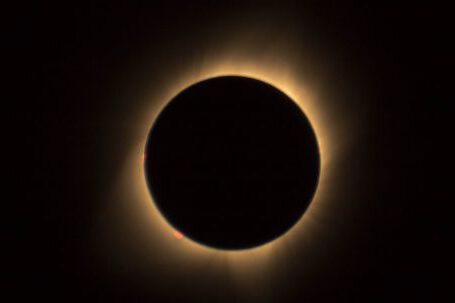Time travel has long been a fascinating concept that has captured the imaginations of people across the globe. From H.G. Wells’ iconic novel “The Time Machine” to blockbuster movies like “Back to the Future,” the idea of traveling through time has ignited countless discussions and debates. But is time travel merely a product of science fiction, or could it potentially become a reality within the realms of science? In this article, we will explore the scientific theories behind time travel and the challenges that lie ahead.
The Theory of Relativity: A Gateway to Time Travel?
Albert Einstein’s theory of relativity, published in 1905, revolutionized our understanding of space, time, and gravity. According to this theory, both space and time are interconnected and can be influenced by the presence of massive objects. This concept gave rise to the possibility of time dilation, where time can pass at different rates depending on one’s relative motion or proximity to a massive gravitational field.
Time dilation has been experimentally verified through various means, such as atomic clocks placed on fast-moving planes or satellites. These experiments have shown that time indeed passes slightly slower for objects in motion compared to stationary ones. While the observed effects are small, they provide a glimpse into the potential for time travel.
Wormholes: Cosmic Shortcuts through Time and Space
Another concept that has captured the attention of scientists and science fiction enthusiasts alike is the idea of wormholes. A wormhole is a hypothetical tunnel that connects two distant points in spacetime, potentially allowing for shortcuts between different regions of the universe.
The mathematical equations of Einstein’s general theory of relativity suggest that wormholes could exist, although they are purely theoretical at this point. If wormholes were to be discovered and harnessed, they could potentially serve as gateways for traversing vast distances in a fraction of time. However, the practicality and stability of wormholes remain significant challenges that need to be overcome.
Grandfather Paradox: The Conundrum of Time Travel
One of the most famous paradoxes associated with time travel is the grandfather paradox. This thought experiment proposes a scenario where a time traveler goes back in time and kills their own grandfather before their parent is conceived. This would create a paradoxical situation where the time traveler’s existence becomes impossible.
The grandfather paradox raises profound questions about the nature of time travel and its implications. While there is no definitive answer to this paradox, it highlights the complexities and potential consequences of altering the past.
The Future of Time Travel: Technological and Ethical Challenges
Despite the exciting possibilities surrounding time travel, numerous technological and ethical challenges need to be addressed before it can become a reality. From creating stable wormholes to developing advanced propulsion systems capable of achieving relativistic speeds, the technological hurdles are immense.
Furthermore, time travel raises ethical dilemmas. How would we prevent misuse of such technology? What impact would time travel have on historical events and the course of human history? These questions require careful consideration and debate before time travel can be responsibly pursued.
In Conclusion: The Fascination with Time Travel
While time travel remains firmly in the realm of science fiction for now, the scientific theories and concepts surrounding it continue to captivate our imagination. The idea of exploring the past or future has an undeniable allure, but it also raises profound questions about the nature of time and our place in the universe. As we continue to push the boundaries of scientific understanding, who knows what discoveries lie ahead? Perhaps someday, time travel will become a reality, and we will unlock the secrets of the universe’s most elusive dimension. Until then, we can only ponder and dream.





